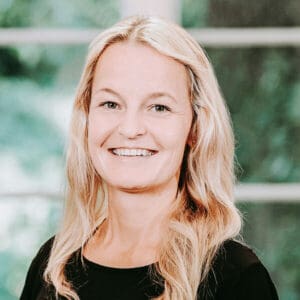
“COVID-19 has uncovered and often accelerated countless problems and undesirable developments in society and the work world. It is high time to do something about it,” says business philosopher Anders Indset in an interview with Janice Köser, manager of the Academy at Staufen AG. Leaving well-trodden paths is never easy, but the philosopher has definite ideas on where to go: The future of business must become sustainable and more socially just.
Future requires transformation to work
It is time to leave behind “higher – faster – better – further”. Over the past decades, man has perfected the art of being right. “What we need today is the art of being wrong,” Anders Indset believes. Indeed, there is more to being right than being pointed, and there is more to being wrong than to have everything be black and white. The many shades of the highly complex present make curiosity, questioning and learning an absolute must.
The future, according to Anders Indset, lies in a humanistic eco-capitalism, where companies consequently have to be about much more than simply maximizing profits: Only if companies act sustainably and socially will they also make sense for generations of grandchildren and great-grandchildren. A new form of economy is needed for this: “We have to scale back and limit ourselves.”
Quantum Economy is not rigid
When thinking about the work world of tomorrow, Anders Indset refers to it as the Quantum Economy. Economy is not as rigid as the models that have been designed for it; it is alive and transforming in all its interconnections and relationships. “I do believe that the future will continue to rely on capitalism, but we need an effort to achieve more balance, that is, not the absolute,” explains the business philosopher.
In addition to limiting and scaling back, and making effective use of resources, new thinking and questioning is especially important here. It takes courage to deal with the unknown, to dare to do something new, but it’s necessary: “That’s the big lever, that people change.” And still, this requires intrinsic motivation; it cannot work if embroiled by rules and control.
Learning in itself has almost an existential quality: Part of our sense of purpose in life is to grow, to learn.
Anders Indset, Business philosopher and publicist
„Leaving BlaBlaLand“
COVID-19 has shone a spotlight on the meeting culture of modern-day workplaces: While prior to the pandemic many people met again and again in meetings to listen to presentations, these meetings are conducted in the home office and often even in the office via video calls to account for distance rules. This shows more pointedly what has been obvious all along: too many of these (virtual) meetings are simply a waste of time. If there is only one person talking and the rest are merely listening along with one ear, they tend to lose the train of thought and more times than not end up no smarter than before, this is a waste of life and work time, as the business philosopher makes clear in his book “Leaving BlaBlaLand”. Real work is often not finished until after work hours because meetings take up so much valuable space.
“Perhaps we should just remove half of them from the calendar and then call the other half co-creation meetings,” suggests Anders Indset. If all participants prepare for the exchange and then work together on the project, that would be much more productive. What is also important here is that people ask many more questions. Often, participants do not even dare to ask those questions that would be helpful to others. The company can only be as successful as the project it is implementing. As a model for the future, the business philosopher argues in favor of separating management and technologies on the one hand and leadership as human design on the other.
The ethics of economic life
“If we want to seriously address justice and responsibility, then let’s first start by defining what we mean by it in the first place,” suggests the business philosopher. He takes climate change as an example of how a problem may be known for a long time, but an incentive is needed to seriously seek out solutions. People do need intrinsic motivation to address problems in depth. Yet at the same time, they need to take responsibility and work on initiatives that strive to make values the new currency. This task becomes yet the more challenging as a result of the complexity of the global system and the existing inequalities.
Infected thinking for a future full of hope
Amid the unconditional pursuit of self-optimization and rapid progress, we have no time to rest, take a deep breath and reflect, complains Anders Indset in his book “Infected Thinking”: “The point is that COVID-19 is not the real problem, but rather the mindset itself. “In addition to diverse new technologies, what is most needed is trust – trust that we humans are all interdependent and collectively capable of meeting the challenges of our current times with thinking, learning and implementing, and by taking steps to create a viable future for everyone.
Moderation

Janice Köser
Manager Academy
STAUFEN.AG
GUEST

Anders Indset
Business philosopher and publicist


